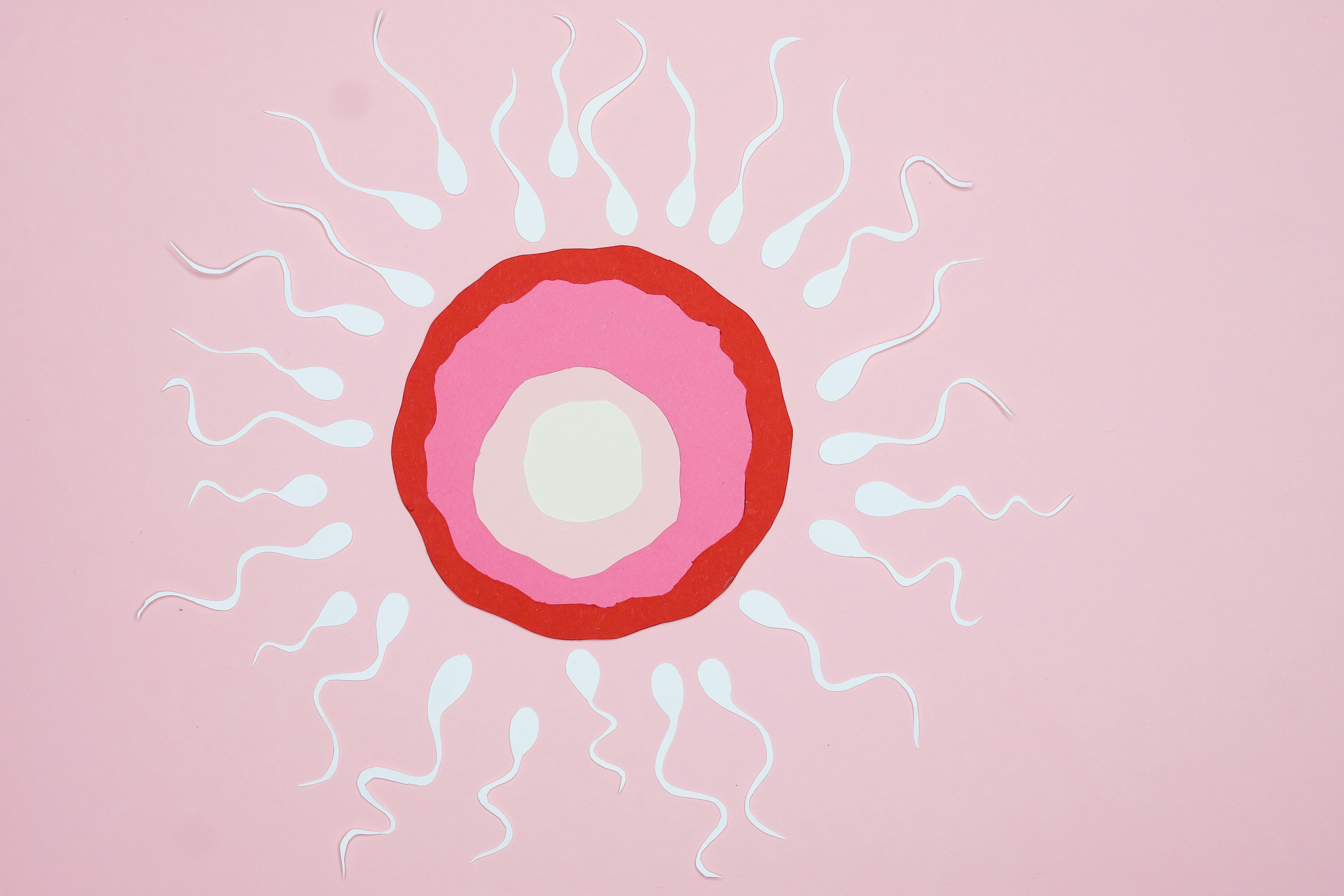If you're dealing with unexplained infertility, you might wonder whether ICSI (Intracytoplasmic Sperm Injection) could be the solution you've been searching for. While ICSI isn't automatically recommended for all unexplained infertility cases, it can be a valuable option when conventional IVF hasn't worked or when specific factors suggest it might improve your chances of conception.
Understanding ICSI and Unexplained Infertility
ICSI is an advanced fertility technique where a single sperm is directly injected into an egg during IVF treatment. Originally developed for severe male infertility, ICSI has evolved to help couples facing various fertility challenges, including some cases of unexplained infertility.
Unexplained infertility affects approximately 10-15% of couples trying to conceive. It's diagnosed when standard fertility tests show normal results, yet pregnancy doesn't occur naturally after 12 months of trying (or 6 months if you're over 35). This diagnosis can feel frustrating because there's no clear cause to address.
| Condition | Definition | Treatment Approach |
|---|---|---|
| Unexplained Infertility | No identifiable cause found through standard testing | Step-by-step approach from IUI to IVF |
| ICSI Indication | Direct sperm injection into egg | Used when fertilization issues are suspected |
| Conventional IVF | Sperm and eggs mixed in laboratory dish | First-line IVF approach for most cases |
When ICSI Might Be Recommended for Unexplained Infertility
While ICSI isn't the first choice for unexplained infertility, certain situations make it a reasonable consideration. Your fertility specialist might recommend ICSI if you've experienced fertilization failure during previous IVF cycles or if there are subtle sperm function issues that standard tests don't detect.
Dr. Zev Rosenwaks from Cornell University's Center for Reproductive Medicine notes that "ICSI can overcome fertilization problems that may not be apparent in routine semen analysis, particularly in cases where sperm-egg interaction is impaired" (Rosenwaks, 2019).
| Scenario | ICSI Recommendation | Success Rate Impact |
|---|---|---|
| First IVF cycle | Usually not recommended | Similar to conventional IVF |
| Previous fertilization failure | Strongly recommended | Significantly improved fertilization |
| Low fertilization rate (<30%) | Consider for next cycle | Better fertilization rates |
| Advanced maternal age (>38) | May be beneficial | Optimizes limited egg potential |
The Science Behind ICSI for Unexplained Infertility
Research shows mixed results regarding ICSI's effectiveness for unexplained infertility. Some studies suggest that ICSI with normal sperm parameters doesn't significantly improve pregnancy rates compared to conventional IVF. However, other research indicates potential benefits in specific situations.
The key lies in understanding that unexplained infertility might involve subtle fertilization problems that become apparent only during IVF treatment. When conventional IVF results in poor fertilization rates, ICSI can bypass these issues by ensuring sperm enters the egg directly.
| Study Parameter | Conventional IVF | ICSI | Clinical Significance |
|---|---|---|---|
| Fertilization Rate | 60-70% | 70-80% | ICSI shows consistent fertilization |
| Pregnancy Rate (first cycle) | 35-40% | 35-45% | Similar overall success rates |
| Live Birth Rate | 30-35% | 30-38% | Comparable outcomes |
Factors That Influence ICSI Decision-Making
Several factors help determine whether ICSI might benefit your specific situation. Your age plays a crucial role, as does the quality and quantity of eggs retrieved during your IVF cycle. Laboratory quality also significantly impacts ICSI success rates.
Your fertility specialist will consider your complete medical history, previous treatment outcomes, and specific circumstances. Sometimes, a split cycle approach is used, where half your eggs undergo conventional IVF and half receive ICSI treatment.
| Factor | Impact on ICSI Decision | Consideration |
|---|---|---|
| Maternal Age | Higher age may favor ICSI | Maximizes fertilization of limited eggs |
| Egg Quality | Poor quality may benefit from ICSI | Ensures fertilization attempt |
| Previous IVF Results | Low fertilization suggests ICSI | Addresses identified problems |
| Sperm Parameters | Borderline values may indicate ICSI | Overcomes subtle dysfunction |
Success Rates and Realistic Expectations
Understanding realistic success rates helps set appropriate expectations. For unexplained infertility, ICSI success rates are generally comparable to conventional IVF when fertilization isn't an issue. However, when fertilization problems exist, ICSI can dramatically improve outcomes.
According to the Society for Assisted Reproductive Technology (SART), live birth rates for ICSI in unexplained infertility cases range from 25-45%, depending primarily on maternal age and clinic-specific factors (SART, 2023).
Potential Risks and Considerations
While ICSI is generally safe, it's important to understand potential considerations. Some studies suggest a slightly increased risk of certain genetic conditions, though the absolute risk remains very low. Current research on birth defects shows reassuring safety data.
The procedure itself carries minimal additional risk compared to conventional IVF. However, ICSI does require more laboratory manipulation of your eggs, which theoretically could impact embryo quality in rare cases.
| Consideration | Risk Level | Management |
|---|---|---|
| Genetic abnormalities | Very low (0.1-0.2% increase) | Genetic counseling available |
| Egg damage during injection | Low (2-5% of eggs) | Skilled laboratory techniques |
| Multiple pregnancies | Similar to conventional IVF | Single embryo transfer recommended |
Alternative Approaches to Consider
Before jumping to ICSI, your fertility team might recommend other approaches. IUI success rates for unexplained infertility can be reasonable, especially for younger patients. Some couples benefit from mild stimulation protocols or natural cycle approaches.
The step-by-step approach typically starts with lifestyle modifications and timed intercourse, progresses to ovulation induction with IUI, and then advances to IVF with or without ICSI based on individual circumstances.
Making the Decision: Questions to Ask Your Doctor
When discussing ICSI for unexplained infertility, prepare specific questions for your fertility specialist. Understanding your clinic's experience, success rates, and approach to decision-making helps ensure you receive personalized care.
| Question Category | Specific Questions | Why It Matters |
|---|---|---|
| Experience | How many ICSI cycles has your clinic performed? | Experience correlates with success |
| Personalization | What factors make ICSI right for my case? | Ensures individualized treatment |
| Alternatives | Should we try conventional IVF first? | Avoids unnecessary procedures |
| Outcomes | What are your clinic's specific success rates? | Sets realistic expectations |
The Emotional Journey and Support
Dealing with unexplained infertility brings unique emotional challenges. The lack of a clear diagnosis can feel frustrating, and deciding between treatment options adds another layer of complexity. Emotional support throughout your fertility journey is crucial.
Remember that choosing ICSI doesn't mean you've failed or that your situation is more serious. It's simply another tool in the fertility treatment toolkit, designed to address specific challenges that might be preventing conception.
Cost Considerations and Planning
ICSI typically adds $1,000-2,000 to your IVF cycle cost. While this might seem significant, it's important to weigh the potential benefits against the expense. Some insurance plans cover ICSI when medically indicated, so check your specific coverage.
At Avida Fertility, we believe in transparent pricing and will discuss all costs upfront, helping you make informed decisions about your treatment plan. Our comprehensive cost information ensures no surprises along your fertility journey.
Frequently Asked Questions
Is ICSI always better than conventional IVF for unexplained infertility?
Not necessarily. ICSI is most beneficial when fertilization problems exist. For many unexplained infertility cases, conventional IVF works equally well and is less invasive.
How do I know if I need ICSI?
Your fertility specialist will recommend ICSI based on factors like previous fertilization rates, sperm parameters, maternal age, and egg quality. The decision is highly individualized.
Can ICSI improve egg quality?
ICSI doesn't improve egg quality itself, but it can maximize the fertilization potential of the eggs you have, which is particularly important when egg quantity or quality is limited.
What happens if ICSI doesn't work?
If ICSI doesn't result in pregnancy, your fertility team will analyze the cycle results and adjust the treatment plan. This might involve genetic testing of embryos or other modifications.
Why Choose Avida Fertility for Your ICSI Treatment
At Avida Fertility, we understand that every fertility journey is unique. Our experienced team uses the latest technology and personalized approaches to determine whether ICSI is right for your specific situation. We don't believe in one-size-fits-all solutions.
Our state-of-the-art laboratory and skilled embryologists ensure the highest success rates for ICSI procedures. We combine advanced techniques with compassionate care, supporting you emotionally and medically throughout your treatment.
Dr. Maria Rodriguez, our lead reproductive endocrinologist, emphasizes that "the decision to use ICSI should always be based on individual patient factors and previous treatment outcomes. We take time to analyze each case thoroughly before making recommendations" (Rodriguez, 2024).
Considering IVF treatment? Avida Fertility is here to support and guide you on your fertility journey. Reach out today for a personalized consultation and take the first step towards building your family with confidence.






.png)







.svg)
.svg)
